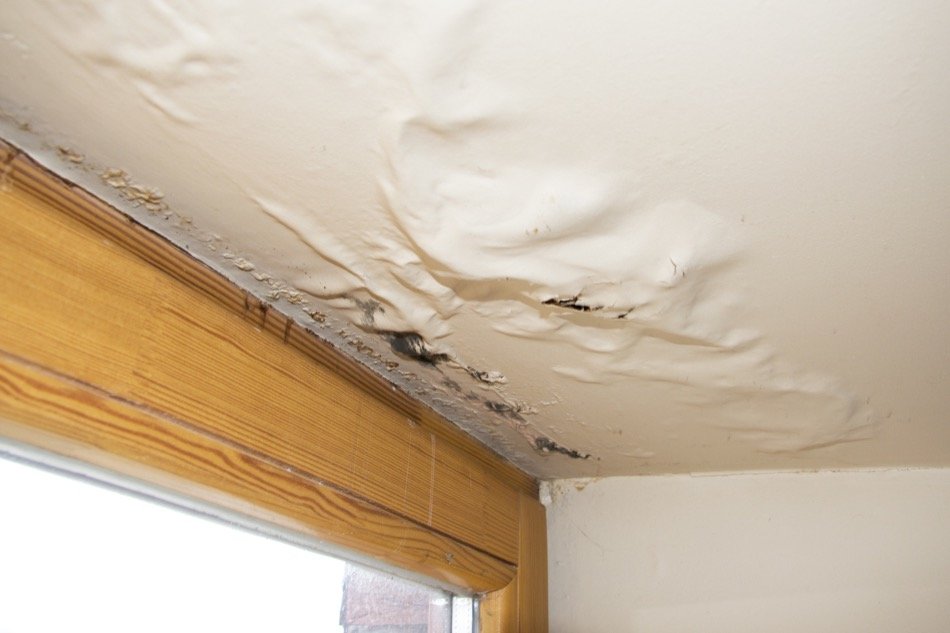Guide to Managing Deferred Maintenance
Posted by Dave Kotler on Tuesday, April 5th, 2022 at 11:46am.
 To be safe for human habitation, homes need to be properly maintained. Homes that are not properly maintained may be plagued by plumbing leaks, electrical problems, structural damage, and more.
To be safe for human habitation, homes need to be properly maintained. Homes that are not properly maintained may be plagued by plumbing leaks, electrical problems, structural damage, and more.
Homes with a lot of deferred maintenance can decrease in value because many homebuyers are reluctant to purchase a home with serious deferred maintenance. If your home has a lot of deferred maintenance, you may have difficulty selling your property. Here's what you need to know.
Why Deferred Maintenance Is a Problem
Small problems become large ones when they're not addressed promptly. Plumbing leaks are one of the best examples of how a minor problem can become significant in a short period.
Plumbing leaks can cause the wood in the walls and floors to rot. When this happens, the wood becomes desirable for pests like carpenter ants and termites. Mould and mildew can also grow in moist environments.
A small plumbing leak may seem like no big deal until the floor of the home has become soft, termites have caused thousands of dollars in damage, and you have to figure out how to get rid of mould in your walls. A similar problem can arise from deferred electrical maintenance. When an electrical system is allowed to become too old to be functional, the homeowner may overload the circuits frequently and could even cause a fire. This kind of event could cause the homeowner thousands of dollars in damage.
How Much You Can Expect to Spend on Maintenance
Deferred maintenance is avoidable. Most homeowners must spend approximately one percent of their home's value on maintenance every year. Homeowners who budget for these expenses and who repair their homes can avoid problems like deferred maintenance.
DIY or Professional Repairs
Once the homeowner is ready to take care of any necessary maintenance, they must ask themselves whether they want to perform DIY repairs or if they would like to hire a contractor. For small problems like drywall repair, interior painting, and drain unclogging, many homeowners perform these tasks without help from a professional. It's essential to hire a professional when:
- The work is too dangerous (like roofing)
- The work requires specialized knowledge and training to be done correctly (such as chimney repair)
- The repair needs special equipment to be done correctly (like sewer work)
- A permit is required to complete the project
Repairs performed by homeowners who don't have the expertise or the equipment to get the job done right could devalue the home.
Want to Buy a Home with Deferred Maintenance?
Buyers must be careful when buying a home with deferred maintenance, even if it is marketed as a fixer-upper. The biggest problem buyers face when purchasing homes with deferred maintenance is the ability to get a loan because some loans do not allow buyers to buy a home that is unsafe to live in. Before buying a home, do some research to learn which loans may approve homes with deferred maintenance. In addition to having loan difficulties, purchasing a home with deferred maintenance can cause financial issues, experience depreciation, and risk future legal problems.
Though some negative things are associated with deferred maintenance, homebuyers may experience some benefits. The main advantage is having additional time to make necessary repairs, especially when money is not immediately available to do so.
Want to Sell But Don't Have the Money to Make Repairs?
Deferred maintenance must be disclosed when the home is put up for sale, especially if the deferred maintenance could cause hardship for the buyer. Examples of the type of maintenance problems that must be disclosed to the buyer include:
- Roofing leak
- Sewer leak
- Foundation problem
- Electrical problems
Homeowners who want to sell their property but don't have the money or motivation to make repairs may need to sell their property at a discount. In many cases, the home must be sold for significantly less than the cost of the repair. This is because most homebuyers expect their home to be move-in ready. Homes that require a lot of work before the buyer can settle in are less desirable and will take longer to sell.
Homeowners who must sell their homes with deferred maintenance must work with their real estate professional to ensure that the house is properly marketed. Buyers must be made aware that the property has a problem and, at the same time, must be made aware of the home's positive qualities. Working with a real estate professional can help ensure that this happens.
Make the Home Repairs Happen Cheaply
If you're a homeowner who needs to make repairs on your home and have a hard time affording the work, shop around with different contractors to get the best deal possible. Communicate your budget limitations with each contractor you meet. Your contractor may be able to suggest a less expensive repair that could achieve the same goals.
Ask your contractor if you can do some of the work yourself to reduce costs. Sometimes getting a loan is necessary to ensure that the repairs get done.
Work With a Real Estate Professional
If you're a homeowner with deferred maintenance, work with a real estate professional when the time comes to sell. Your real estate professional can help you decide whether it's better to make the repairs or to sell the home as-is. Either way, your real estate professional can make the transaction easier and more successful.
Dave Kotler

